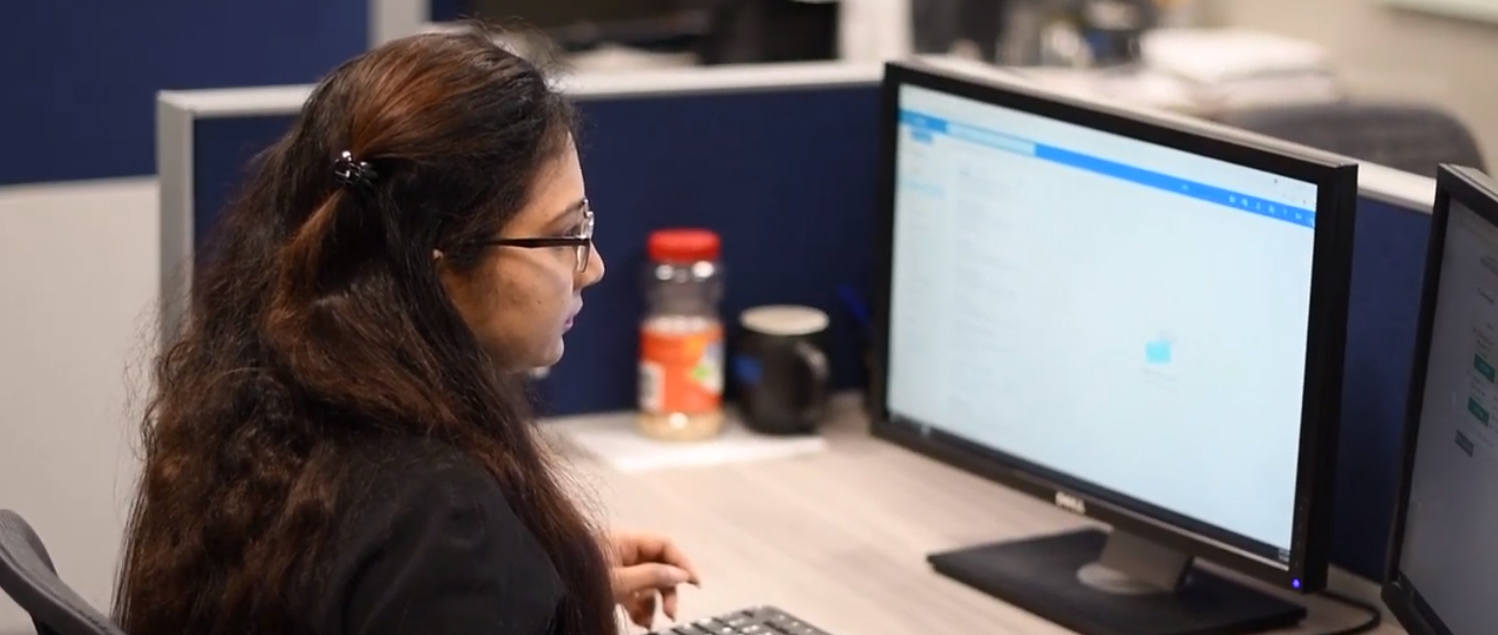Why Study Informatics?
In the Informatics Ph.D. program, you'll have the opportunity to study all aspects of living in a digital world, including developing an understanding of human needs by going into the field, designing new technology, putting technology to use in laboratory experiments and trial deployment, or devising theories about information technology and its role in society.
Our Partnerships
The IIT Department has agreements with leading cyber infrastructure technology companies, including Cisco Systems, VMware, Palo Alto Networks, Red Hat, Juniper Networks, and Barefoot Networks.
The field of informatics is rapidly growing in the area of health and medical informatics, which is a logical extension of our well-established Master of Health Information Technology.
Program of Study
In the Informatics Ph.D. program you will work in trans-disciplinary teams and apply advanced informatics principles to solve complex problems. You'll design and execute a rigorous research project in a specific informatics area of interest and contribute to informatics research through scientific writing, oral communication, grant writing, teaching and professional service.
A total of 60 credit-hours beyond the bachelor’s degree, or 48 credit-hours beyond the masters, is required for the Ph.D. in Informatics. Degree components include:
- Research resulting in a dissertation proposal, a dissertation, a dissertation defense, publications and 12 hours of dissertation credit
- 21 hours of core informatics courses
- 15 hours of hours of approved informatics electives
- 12 hours of research methods electives
- Qualifying and comprehensive exams
Informatics Ph.D. students acquire the ability to identify pertinent research problems, to formulate and execute a research plan, to generate and analyze original research results, and to communicate those results through oral presentations and written publications submitted to refereed archival journals.
Core subjects include:
- Principles of Informatics
- Information Privacy and Security
- Systems Analysis and Design
- IT Usability and Interface Design
- Project Management
- Database Systems
- Enterprise Data Analytics
Visit Graduate Handbooks and Curricula for additional detail.
Concentration in Health Informatics
An optional Health Informatics concentration can be completed without additional coursework. Students pursuing this concentration take specific informatics electives and are advised to take health-related research methods courses. Approved elective subjects in Health Informatics include:
- Health Information Technology and Clinical Transformation
- Large-Scale Health and Information Systems
- Leadership in Health Care Organizations
- Financing of Health Care
- Effective Data Management for Public Health
- Applied Public Health Law for Administrators
Whether you specialize or generalize your program of study, you'll use convergent research strategies and team-based science to address a variety of complex problems in industry and society.
Graduate Admissions
All applications must be submitted to the Graduate School of the University of South Carolina. The Graduate School provides helpful information on the admissions application process and even lets you know what to do before you apply.
Admissions are competitive. An admissions scorecard will be used to evaluate applicants, weighing the applicant's undergraduate GPA, GRE scores or GMAT scores, reference letters, previous professional experience and a career goal statement (note GRE or GMAT scores are optional for admissions through 2023).
A successful applicant typically has:
- A Bachelor's degree with an undergraduate GPA of at least 3.0 on a 4-point scale. An official transcript of undergraduate work is required. Pending completion of the degree, an official transcript of all coursework taken to date may be reviewed.
- A minimum score of 300 on the new GRE exam: 150 verbal/150 quantitative (450 verbal/550 quantitative on the old exam), or a GMAT score of 500 or higher. Official GRE or GMAT scores must be submitted through the Graduate School.
GRE or GMAT waivers may be available for applicants with one or more of:
- Completion of a prior advanced degree (masters or higher) from a nationally accredited institution
- A combination of an undergraduate cumulative grade point average of 3.25/4.00 or higher for the final 60 credit hours of the degree and three years or more of significant industry experience
- Currently admitted in another USC graduate program and have completed at least 9 credits of graduate study with a cumulative GPA of at least 3.0.
A personal interview with the program director may also be required. Applicants interested in pursuing a waiver should contact the program director for guidance. Waivers are never guaranteed and must be approved by the Informatics admissions committee, whose decisions are final.
